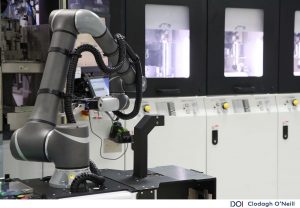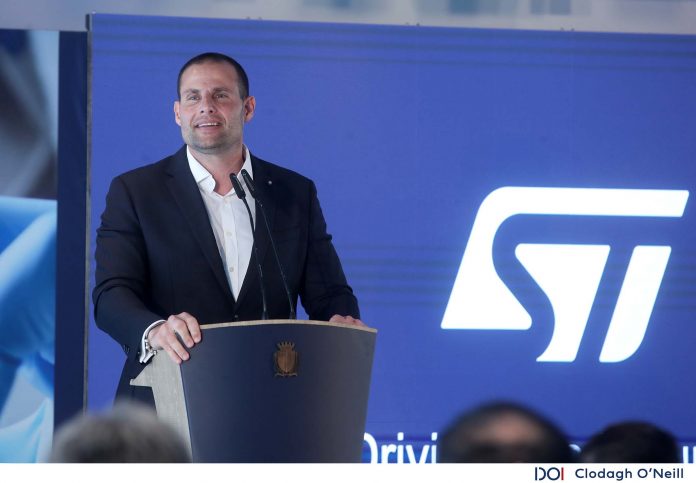During a visit to the ST Microelectronics factory where pilot projects for new digital and robotic equipment favouring automated technology in industry 4.0 are currently underway, Prime Minister Robert Abela stated that our country has all the right qualities to become a centre for European innovation and technology in the semiconductor sector.
The project is part of a number of European projects under the Important Projects of Common European Interest (IPCEI) program, leading to research and development projects on the most advanced technologies in the world. At the ST plant in Kirkop, innovative technological products are being developed and are aimed at improving the company’s operations in microchip manufacturing. The Prime Minister acknowledged the government’s commitment in supporting innovation at factories such as those of ST, and also noted how the future of this company, which employs 1,800 people in Malta, is a bright one indeed.

During the visit to the plant, where 2.7 million microchips are processed daily, Prime Minister Abela highlighted that in reality, many devices we use, from smartphones to cars, have microchips in them which were made in Malta. He added that these microchips play an important role in today’s technological world, and therefore Malta’s role in the technological framework is one which is truly significant.
“This is how we are modernising our country’s economy and creating quality jobs where Maltese and Gozitan students can find employment in the most advanced technology sectors in the world. This showcases the government’s drive and ambition in pushing forward the country’s economic development.
Prime Minister Robert Abela praised ST’s commitment to Malta, and underscored the ongoing investments facilitated by Malta Enterprise and INDIS as a clear testament to this commitment. Joined by the Minister for the Economy, Enterprise, and Strategic Projects Silvio Schembri, Prime Minister Abela witnessed ongoing work on the state-of-the-art technology that addresses the testing and packaging of digital microchips for automotive, industrial applications. The Prime Minister also witnessed the advanced technology linked to automated manufacturing run by artificial intelligence.
Prime Minister Abela stated that Malta is not passive about the current global geopolitical debate on the semiconductor industry. Rather, Malta is being vocal at the European level to continue strengthening industrial competitiveness and innovation. He noted how it is no small feat that our country is involved in the IPCEI in the Microelectronics and Communication Technology sector.

Dr Abela said that what he witnessed in the pilot projects are the tangible first results of the IPCEI program, of which the University of Malta is an indirect partner through cooperation between educational institutions in Malta and ST Malta. Prime Minister Abela emphasised the importance of collaboration between industry and research. In this context, he mentioned a recent agreement that the Government signed with IMEC, a world-renowned centre in the field of research and innovation in nanoelectronics and digital technologies.
The Prime Minister said that what started at ST will strengthen our ecosystem for innovation and semiconductor technology. This will continue to modernise our economy, and offer the best opportunities for Maltese and Gozitans, especially the youth.










